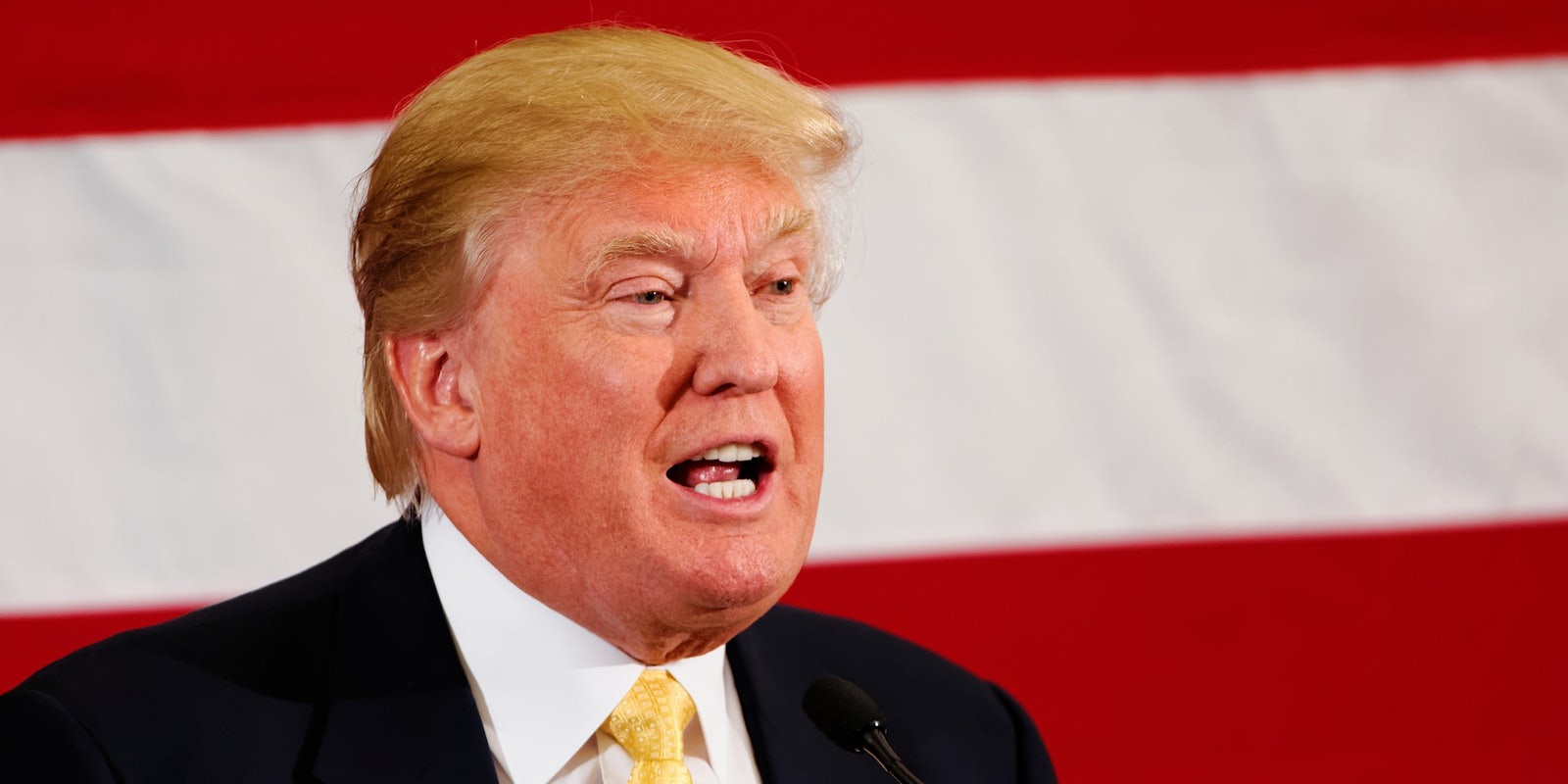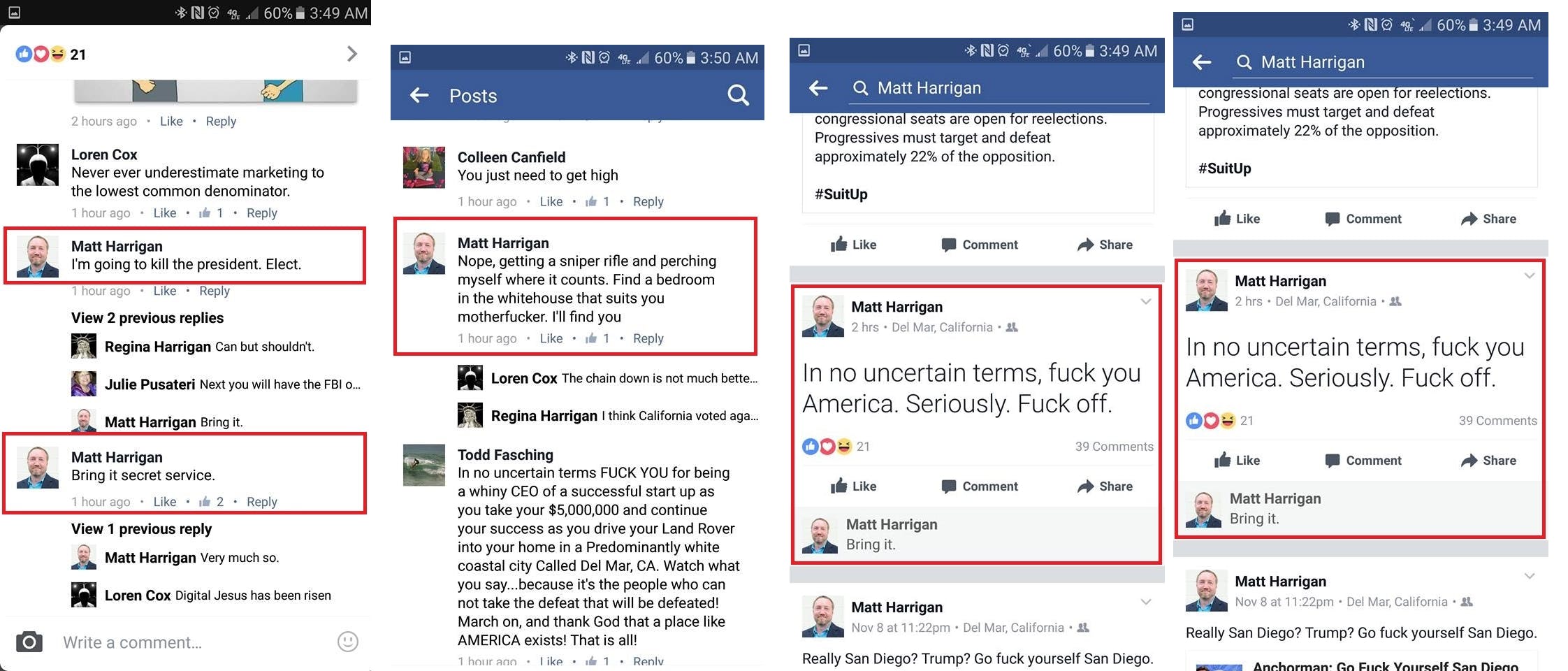Pro tip: Don’t threaten to kill anyone—and definitely don’t threaten to murder Donald Trump.
Matt Harrigan learned that lesson the hard way after his private Facebook posts in which he vowed to shoot the president-elect with a sniper rifle found their way onto Reddit‘s very public and pro-Trump community, r/The_Donald.
“I’m going to kill the president. Elect,” Harrigan, now-former president and CEO of San Diego cybersecurity firm PacketSled, said in post. “Bring it Secret Service.”
In a statement, PacketSled condemned Harrigan’s posts.
“The PacketSled Board of Directors accepted the resignation of President and CEO Matthew Harrigan, effective immediately,” the company said, adding, “We want to be very clear, PacketSled does not condone the comments made by Mr. Harrigan, which do not reflect the views or opinions of the company, its employees, investors or partners.”
That statement replaced an earlier apology by Harrigan, which has since been removed from PacketSled’s site, according to the Next Web. In it, Harrigan said his posts were a “joke” that were taken out of context by being moved into a public forum.
“My recent Facebook comment was intended to be a joke, in the context of a larger conversation, and only privately shared as such,” Harrigan wrote. “Anyone who knows me, knows that I do not engage in this form of rhetoric with any level of seriousness and the comment most certainly does not represent my real personal views in any regard. I apologize if anything that I said was either taken seriously, was offensive, or caused any legitimate concern.”
To be clear, people threaten others, including lawmakers and other high-ranking officials, with alarming regularity online. The moment President Barack Obama launched the @POTUS Twitter account, for example, he was inundated with death threats.
Simply speaking, First Amendment protections of free speech do not protect “true threats” against another person under federal law. And multiple people have been sentenced to prison for making threats against Obama on social media.
However, in the first Supreme Court case to test the limits of free speech on social media, 2015’s Elonis v. United States, the Court ruled 8-1 to reverse the conviction of Anthony D. Elonis, who posted a series of violent rap lyrics on Facebook that appeared to threaten his ex-wife.
Courts have generally interpreted federal law against interstate threats—which includes threats posted online—to mean that a “reasonable person” would perceive a person’s words as a genuine threat rather than, say, a joke. Elonis rejects that notion but leaves the door open for similar cases.
All that said, regardless of whether Harrigan was joking or not, it was still a very bad idea.
H/T Mashable



